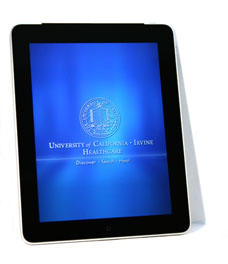
What’s remarkable to me is how this represents the first real step towards the integration of mobile health functionality in the lives of the next generation of physicians.
A couple of thoughts:
The clinical years. The benefits of a portable, multimedia device during the information dense first and second years are a no brainer. But it will be interesting to see how things evolve as we push students into rotations in hospitals that haven’t embraced mobile applications with attendings who don’t use iPads. I suspect that this could have the very interesting effect of forcing adoption in settings that have been resistant to mobile health technology.
How will iPad change the way medical students integrate socially? The iPad will force a new level of real time interaction between students. Beyond the mainstream social players like Facebook which would present present huge HIPAA issues during the latter years of medical school, students will need a platform to integrate dialog and discussion without being hobbled by legally scripted deidentification of information. Evolving applications like iMedExchange may be a player here. If schools don’t provide an approved space for this dialog, students will make their own.
When students talk. With portability and social engagement comes the increased potential for dialog surrounding patients. There is also the issue of increasing dialog between student and patient. I see this as major issue that needs to be formally addressed by medical schools. Formal education on the legal and ethical ramifications of social health chatter among professionals needs to be integrated into curricula. Tablet adoption may create the perfect way to start the discussion.
If anyone from the AAMC picks up on this post, I have some ideas on you can take the lead in setting these important standards.
Will iPad become the academic standard that forces the next generation of physicians? Tablet competition is looming. Will Apple take critical early ground in the heats and minds of academic medical leaders? Just like in the early days of Apple Computer, academics came out of school trained in the Apple OS. It took years for Windows to gain market share with those academic leaders who were comfy with Apple. This could easily play itself out in the tablet market in academic medicine. Doctors, for better or worse, are creatures of habit and Apple’s early position could have real derivative effects with regard to future applications.
While it’s easy to think about how the iPad will change medical education, I like to think about how this will change the next generation of medical providers.
What am I missing here?